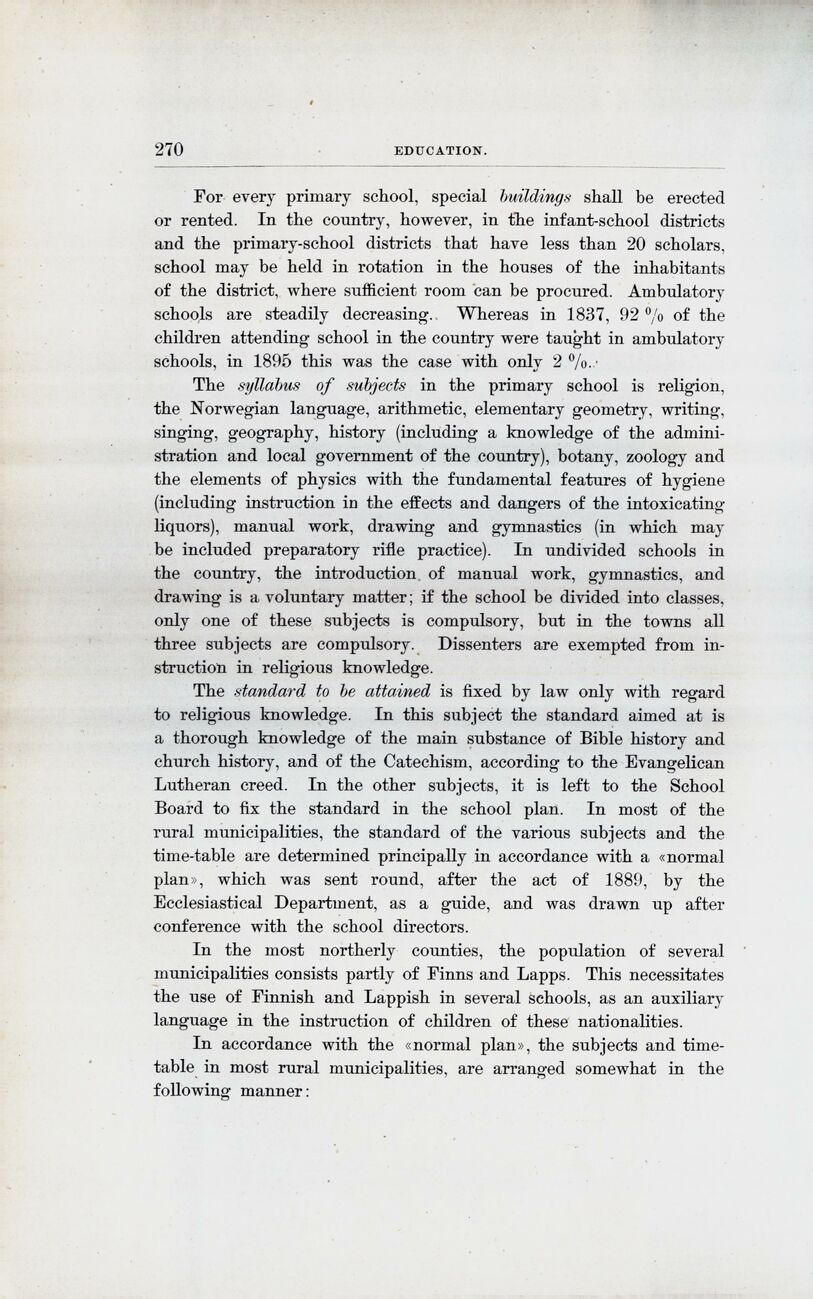
Full resolution (JPEG) - On this page / på denna sida - Education, by J. V. Heiberg

<< prev. page << föreg. sida << >> nästa sida >> next page >>
Below is the raw OCR text
from the above scanned image.
Do you see an error? Proofread the page now!
Här nedan syns maskintolkade texten från faksimilbilden ovan.
Ser du något fel? Korrekturläs sidan nu!
This page has been proofread at least once.
(diff)
(history)
Denna sida har korrekturlästs minst en gång.
(skillnad)
(historik)
For every primary school, special buildings shall be erected
or rented. In the country, however, in the infant-school districts
and the primary-school districts that have less than 20 scholars,
school may be held in rotation in the houses of the inhabitants
of the district, where sufficient room can be procured. Ambulatory
schools are steadily decreasing. Whereas in 1837, 92 % of the
children attending school in the country were taught in ambulatory
schools, in 1895 this was the case with only 2 %.
The syllabus of subjects in the primary school is religion,
the Norwegian language, arithmetic, elementary geometry, writing,
singing, geography, history (including a knowledge of the
administration and local government of the country), botany, zoology and
the elements of physics with the fundamental features of hygiene
(including instruction in the effects and dangers of the intoxicating
liquors), manual work, drawing and gymnastics (in which may
be included preparatory rifle practice). In undivided schools in
the country, the introduction of manual work, gymnastics, and
drawing is a voluntary matter; if the school be divided into classes,
only one of these subjects is compulsory, but in the towns all
three subjects are compulsory. Dissenters are exempted from
instruction in religious knowledge.
The standard to be attained is fixed by law only with regard
to religious knowledge. In this subject the standard aimed at is
a thorough knowledge of the main substance of Bible history and
church history, and of the Catechism, according to the Evangelican
Lutheran creed. In the other subjects, it is left to the School
Board to fix the standard in the school plan. In most of the
rural municipalities, the standard of the various subjects and the
time-table are determined principally in accordance with a «normal
plan», which was sent round, after the act of 1889, by the
Ecclesiastical Department, as a guide, and was drawn up after
conference with the school directors.
In the most northerly counties, the population of several
municipalities consists partly of Finns and Lapps. This necessitates
the use of Finnish and Lappish in several schools, as an auxiliary
language in the instruction of children of these nationalities.
In accordance with the «normal plan», the subjects and
time-table in most rural municipalities, are arranged somewhat in the
following manner:
<< prev. page << föreg. sida << >> nästa sida >> next page >>